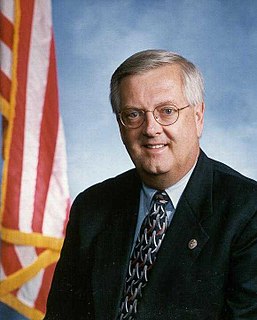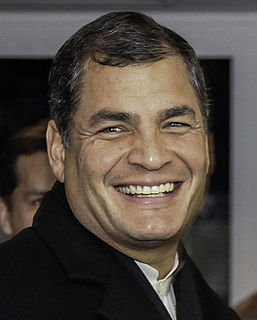A Quote by Barack Obama
Keep in mind that, when I came in, we had had a crisis that was the worst we've seen since the 1930s, and working with people like Chancellor Merkel, working with the G-20 and other institutions internationally, we were able to stabilize the financial system, stabilize the US economy and return to growth.
Related Quotes
Let's stop for a second and remember where we were eight years ago [in 2008]. We had the worst financial crisis, the Great Recession, the worst since the 1930s. That was in large part because of tax policies that slashed taxes on the wealthy, failed to invest in the middle class, took their eyes off of Wall Street, and created a perfect storm.
The global financial crisis is a great opportunity to showcase and propagate both causal and moral institutional analysis. The crisis shows major flaws in the way the US financial system is regulated and, more importantly, in our political system, which is essentially a bazaar of legalized bribery where financial institutions can buy themselves the governmental regulations they want, along with the regulators who routinely receive lucrative jobs in the industry whose oversight had formerly been their responsibility, the so-called revolving-door practice.
When you've got a economy in which 40 percent of economic growth is happening in the financial sector, that turns out that was all an illusion, that it wasn't growth based on real products and services, but just a bunch of paper shuffling and a house of cards, then what's gonna emerge, at some point, is a sense of resentment, a sense that the system's rigged, and it's not working for ordinary people. And it's not fulfilling the basic American dream.
The powers of financial capitalism had a far-reaching aim, nothing less than to create a world system of financial control in private hands able to dominate the political system of each country and the economy of the world as a whole. This system was to be controlled in a feudalist fashion by the central banks of the world acting in concert, by secret agreements arrived at in frequent meetings and conferences.
In 1990, about 1 percent of American corporate profits were taken in tax havens like the Cayman Islands. By 2002, it was up to 17 percent, and it'll be up to 20-25 percent very quickly. It's a major problem. Fundamentally, we have a tax system designed for a national, industrial, wage economy, which is what we had in the early 1900s. We now live in a global, asset-based, services world. And we need to have a tax system that follows the economic order or it's going to interfere with economic growth, it's going to reduce people's incomes, and it's going to damage the US.

































